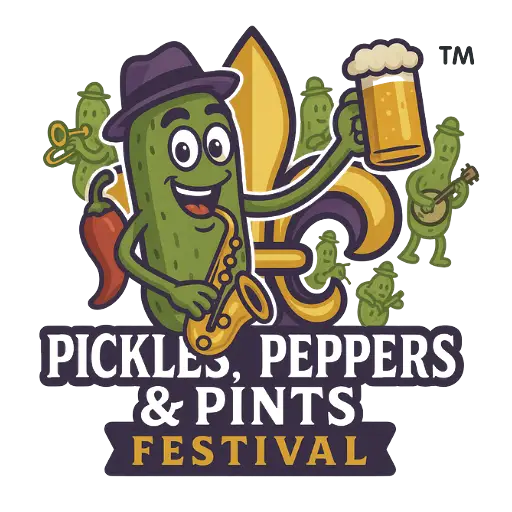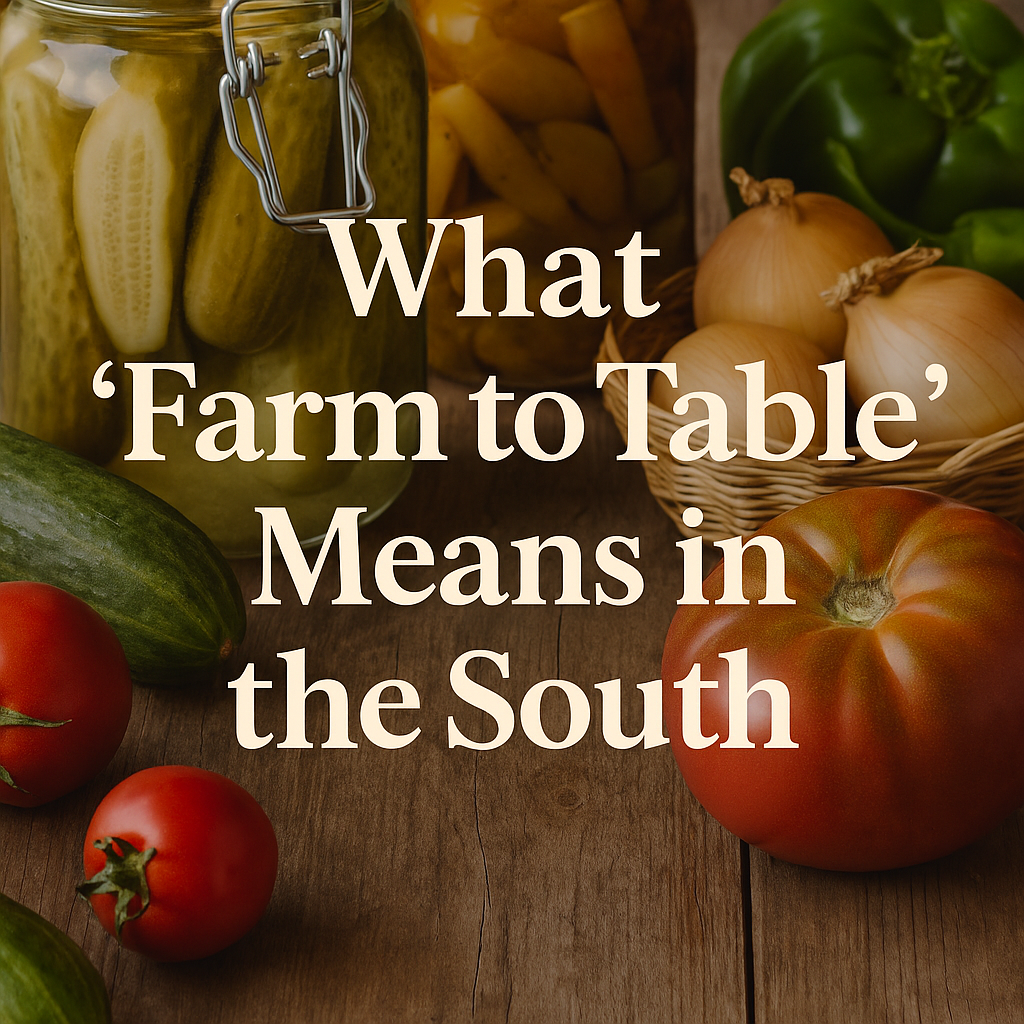What 'Farm to Table' Means in the South
Category: Farm to Festival
Tags: Pickles, Festival, NOLA, Food Culture
A Tradition, Not a Trend
Before it was branded as sustainable or chic, Southern communities were living the farm-to-table ethos out of necessity. Grandmothers grew okra and collard greens in backyard gardens. Grandfathers smoked their own meats. And seasonal eating wasn’t a health trend—it was just how food worked.
Even today, in places like Louisiana, Mississippi, and Alabama, many families still grow their own produce, visit weekly farmers’ markets, or trade with neighbors for fresh eggs and homemade pickles.
Southern Soil, Southern Soul
Southern soil has long yielded more than just crops—it has grown culture, connection, and creativity. Whether it’s Creole tomatoes, Vidalia onions, or Carolina Gold rice, the South’s terroir shapes its taste.
Local chefs are taking note. Across the region, restaurants are partnering directly with farmers and fishers. Chefs like Melissa Martin of the Mosquito Supper Club in New Orleans and Sean Brock in Nashville are spotlighting heritage ingredients with reverence. Their menus tell the stories of the people who grow the food—shrimpers, rice farmers, and sweet potato growers.
Pickled, Preserved, and Proud
Pickling is one of the South’s oldest farm-to-table practices. A surplus of cucumbers? Pickle them. Too many green tomatoes? Fry some, can the rest. It’s part thrift, part tradition, and part flavor-forward ingenuity.
At festivals like Pickles, Peppers & Pints, you’ll see how these preservation methods become art—colorful mason jars filled with okra, watermelon rind, chow chow, and pickled peppers. They represent a past when food had to last through hot summers and long winters and a present that celebrates those methods.
Local Food Builds Stronger Communities
When you buy from a local grower or maker, you're not just supporting small business—you’re investing in food security, job creation, and cultural preservation. According to the National Sustainable Agriculture Coalition, local food systems generate 13 full-time jobs per $1 million in revenue, compared to just 3 jobs from conventional large-scale agriculture.
In a city like New Orleans, where flavor is identity, “farm to table” means something personal. It means building relationships with farmers on the Westbank, with oyster harvesters in Plaquemines Parish, and with Creole cooks in Tremé.
From Soil to Celebration
Farm to table in the South culminates not just in restaurants, but in festivals—joyous celebrations where growers, chefs, and neighbors gather around a shared love of food. From farmers’ market tastings to live pickling demos and Southern cook-offs, festivals like Pickles, Peppers & Pints are where the harvest meets hospitality.
It’s not just about what’s on the plate—it’s about who put it there, how it got there, and what stories it tells.


